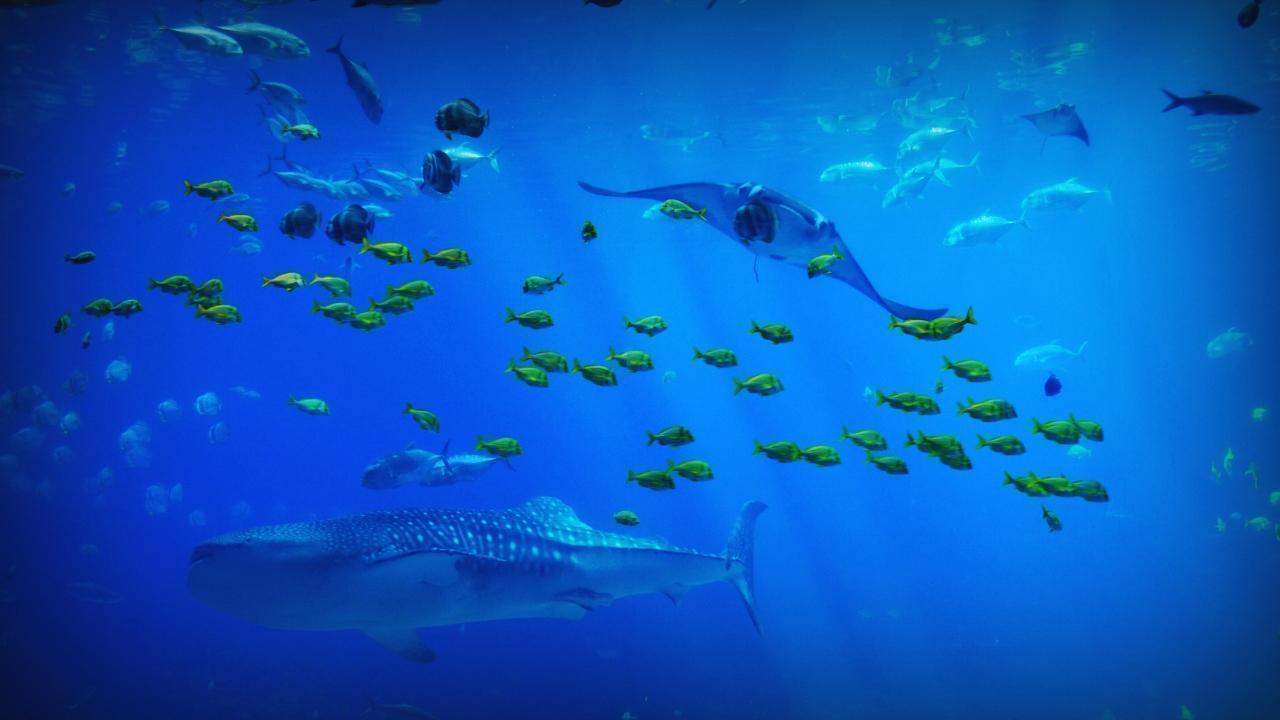You have not yet added any article to your bookmarks!

Join 10k+ people to get notified about new posts, news and tips.
Do not worry we don't spam!

Post by : Anis Farhan
Oceans cover more than 70% of the Earth's surface and play a vital role in regulating the climate, providing food, and supporting economic activities worldwide. Yet, human activities have put marine ecosystems under immense pressure. Pollution, overfishing, habitat destruction, and the impacts of climate change are pushing oceans to a crisis point. In response, countries, organizations, and communities across the world are stepping up efforts to prioritize ocean conservation, recognizing that healthy oceans are essential for a sustainable and prosperous future.
In recent years, alarming reports have highlighted the degradation of the world’s oceans. Marine biodiversity is declining at unprecedented rates, with coral reefs bleaching, fish populations collapsing, and pollution levels skyrocketing. The United Nations estimates that nearly 90% of global fish stocks are either fully exploited or overexploited. Additionally, oceans absorb about 30% of carbon dioxide emissions, leading to acidification that threatens countless marine species. Plastic pollution has emerged as a significant threat, with millions of tons entering the oceans annually, harming marine life and ecosystems.
Recognizing the urgency, nations are joining hands through international treaties and agreements. The recent High Seas Treaty, signed under the United Nations, aims to protect marine biodiversity in international waters, marking a historic milestone in ocean conservation. Similarly, the Paris Agreement includes crucial commitments to safeguard oceans as part of the climate agenda. Regional efforts like the European Union’s “Mission Restore Our Ocean” and the United States’ “Ocean Climate Action Plan” are leading examples of how countries are formalizing their commitment to marine protection.
The concept of the blue economy has emerged as a way to link ocean health with economic development. Countries are recognizing that sustainable use of marine resources can generate jobs, boost local economies, and ensure long-term ecological balance. Industries like sustainable fishing, eco-tourism, and offshore renewable energy are gaining traction. Nations such as Norway, Seychelles, and Indonesia are pioneering blue economy strategies, balancing conservation with growth while promoting responsible marine resource management.
Technological advancements are playing a pivotal role in advancing ocean conservation. Satellite surveillance, drone monitoring, and artificial intelligence are helping track illegal fishing and monitor marine environments in real time. Innovations like biodegradable fishing gear, plastic-eating enzymes, and advanced water filtration systems are offering new ways to reduce human impact on oceans. Tech startups and scientific institutions are collaborating globally to develop solutions that can scale and address oceanic challenges more effectively.
Grassroots activism and public campaigns have significantly elevated the global conversation on ocean conservation. Movements like Plastic Free July, The Ocean Cleanup project, and global beach clean-up drives have mobilized millions of people to take action. Influential documentaries such as Seaspiracy and Blue Planet have brought marine issues to the forefront of public consciousness, encouraging behavioral changes and pushing governments to enact stricter environmental policies.
Corporations are increasingly joining the cause, integrating ocean sustainability into their business models. Major brands in fashion, food, and shipping industries are pledging to reduce plastic use, cut emissions, and support marine conservation projects. Initiatives like the Sustainable Ocean Principles by the UN Global Compact are providing a framework for businesses to contribute positively to ocean health, demonstrating that corporate responsibility can extend beyond land-based operations.
Despite growing momentum, challenges persist. Enforcement of marine protection laws remains weak in many regions, and illegal fishing continues to deplete marine stocks. Limited funding, lack of political will, and fragmented governance further hamper large-scale ocean conservation efforts. Small island developing states, which depend heavily on marine resources, often struggle with capacity and resources to enforce sustainable practices. Bridging these gaps requires international cooperation, technological support, and equitable financing mechanisms.
Ocean conservation is no longer a peripheral issue—it is central to achieving global sustainability goals. With increasing awareness, stronger international cooperation, technological progress, and growing public engagement, the world is witnessing a positive shift towards safeguarding marine ecosystems. The next decade will be crucial in determining whether humanity can reverse the damage inflicted on oceans and build a future where marine life thrives alongside human progress. Protecting the oceans is not just an environmental necessity but a global priority essential for the planet’s health and prosperity.
This article is intended for informational purposes only and does not constitute environmental, legal, or policy advice. Readers are encouraged to consult official environmental agencies and experts for detailed information on marine conservation practices and policies.










Minimarkets May Supply Red and White Village Cooperatives
Indonesia’s trade minister says partnerships with minimarkets and distributors can strengthen villag

South Africa vs West Indies Clash Heats Up T20 World Cup 2026
Unbeaten South Africa and West Indies meet in a high-stakes Super 8 match at Ahmedabad, with semi-fi

Thai AirAsia Targets Growth Through China & Long-Haul Routes
Thai AirAsia aims 6-9% revenue growth in 2026 expanding domestic flights and new international route

India Ends Silent Observer Role Emerges Key Player in West Asia
From passive energy buyer to strategic partner India’s diplomacy in West Asia now commands trust inf

Indian Students Stuck In Iran Amid US-Iran Tensions And Exam Worries
Rising US-Iran tensions leave Indian students stranded, fearing missed exams could delay graduation

India Says J&K Budget Exceeds Pakistan’s IMF Bailout
India slammed Pakistan at UNHRC, stating J&K’s development budget exceeds Pakistan’s IMF bailout and